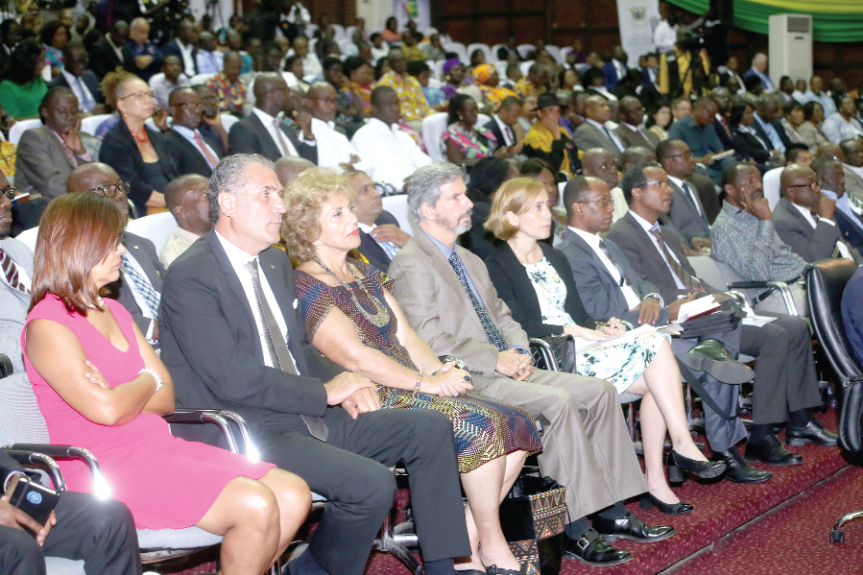
A National Policy Summit on Trade and Industry opened in Accra on Monday, with President Nana Addo Dankwa Akufo-Addo asking for public support towards the implementation of the government’s industrialisation programme.
Particularly, he appealed for the unflinching support of the private sector in ensuring a well-coordinated agenda aimed at enhancing the socio-economic progress of the country.
The President said the government’s industrial agenda was anchored on building the competitiveness of existing local industries by facilitating access to medium and long-term financing at low interest rates and the implementation of the one- district, one-factory (1D1F) initiative, which is designed to bring industrialisation to the doorstep of the people.
Focused on trade and industry, the summit is on the theme: “The industrial transformation of Ghana.”
Strategic anchor industries
President Akufo-Addo said in addition to that, the government would be introducing strategic anchor industrial initiatives to create new growth poles for the Ghanaian economy, as well as establish industrial parks and special economic zones.
To ensure a national spread of those initiatives, he said, each of the 10 regions would have at least one of such zones.
The pre-occupation of the government, he said, was to promote small and medium enterprises (SMEs) development and establish an industrial sub-contracting exchange that would link the SMEs to the supply chain of large-scale enterprises.
He said some of the initiatives being pursued by the government, including reducing the cost of doing business and the shift from taxation to production, were bearing fruits.
Industry recorded growth of 0.8 per cent in 2014, -0.3 per cent in 2015, with a further reduction to -1.4 per cent in 2016, President Akufo-Addo said, adding that four years of the power crisis that rocked the country had also cumulatively led to a loss of more than US$3 billion in economic activity and, in the process, thousands and thousands of Ghanaians lost their jobs.
However, he said, the prudent measures put in place by the government had resulted in industry growing at 11.5 per cent in the first half of 2017.
 Some of the participants at the summit.
Some of the participants at the summit.
Growth-promoting reforms
“Among other measures, the government announced tax cuts amounting to over one billion Ghana cedis. These reforms are designed to make Ghana the most business friendly nation in Africa, if not in the world.
“That is our goal. We recognise that macroeconomic stability is a necessary, but not sufficient, condition for economic transformation,” he said.
The President assured participants and Ghanaians of his personal commitment to “ensure the success of what I believe will be one of the most significant contributions of my administration to the transformation of our nation”.
The Chairman of the Council of State and Paramount Chief of the Juaben Traditional Area, Nana Otuo Serebour, said the various policies rolled out by President Akufo-Addo had clearly demonstrated that he was committed to making good the promises that he made to Ghanaians.
He said the summit ought to provide the ripe opportunity for all stakeholders to critically examine the government’s vision of industrial and economic transformation.
For his part, the Minister of Trade and Industry, Mr Alan Kyeremanten, said the aim of the summit was to use the policies arrived at to drive the transformation that the nation required.
China’s example
“I want us to draw our minds back. Thirty years ago, China, in all respects, was considered a poor country. But, then, it took two major policy instruments by a dynamic leader to change the fortunes of China,” he said.
The first, he said, was the policy to open up to foreign investors to invest in China, and, secondly, there was no reliance on the local market of China but to take advantage of the export market.
“So we in Ghana would like to use policies as instruments of transforming our economy,” he declared.